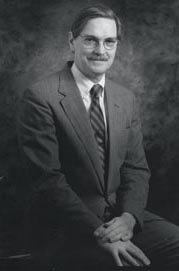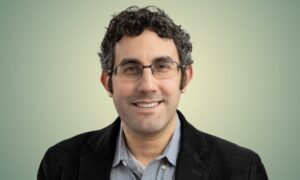 ROBERT S. LAWRENCE, the first Center for a Livable Future Professor, joined the faculty in 1995 as associate dean for Professional Education and Programs, and professor of health policy and management. A graduate of Harvard College and Harvard Medical School, he trained in internal medicine at the Massachusetts General Hospital. Following duty as an epidemic intelligence service officer, CDC, he joined the faculty of the University of North Carolina. From 1974 to 1991 he directed the Division of Primary Care at Harvard Medical School, and from 1991 to 1995 directed health sciences at the Rockefeller Foundation, overseeing grants to improve health in Asia, Africa and Latin America. Dr. Lawrence is a founding member of Physicians for Human Rights, which shared the Nobel Peace Prize in 1997, and currently chairs its board of directors. He has participated in human rights investigations in Chile, Czechoslovakia, Egypt, El Salvador, Guatemala, the Philippines, South Africa and Kosovo. He is the founding director of the Center for a Livable Future.
ROBERT S. LAWRENCE, the first Center for a Livable Future Professor, joined the faculty in 1995 as associate dean for Professional Education and Programs, and professor of health policy and management. A graduate of Harvard College and Harvard Medical School, he trained in internal medicine at the Massachusetts General Hospital. Following duty as an epidemic intelligence service officer, CDC, he joined the faculty of the University of North Carolina. From 1974 to 1991 he directed the Division of Primary Care at Harvard Medical School, and from 1991 to 1995 directed health sciences at the Rockefeller Foundation, overseeing grants to improve health in Asia, Africa and Latin America. Dr. Lawrence is a founding member of Physicians for Human Rights, which shared the Nobel Peace Prize in 1997, and currently chairs its board of directors. He has participated in human rights investigations in Chile, Czechoslovakia, Egypt, El Salvador, Guatemala, the Philippines, South Africa and Kosovo. He is the founding director of the Center for a Livable Future.
Held by Keeve Nachman
 KEEVE NACHMAN, PhD, MHS, is the Robert S. Lawrence Professor in the Department of Environmental Health and Engineering at the Johns Hopkins Bloomberg School of Public Health. As a member of the leadership of the Center for a Livable Future (CLF), he is an internationally known expert in cutting edge-research and advocacy focused on defining the impact of food production practices on human health to lessen the potential impact of these practices.
KEEVE NACHMAN, PhD, MHS, is the Robert S. Lawrence Professor in the Department of Environmental Health and Engineering at the Johns Hopkins Bloomberg School of Public Health. As a member of the leadership of the Center for a Livable Future (CLF), he is an internationally known expert in cutting edge-research and advocacy focused on defining the impact of food production practices on human health to lessen the potential impact of these practices.
Dr. Nachman received his MHS in Environmental Health Sciences in 2001, and his PhD in 2006 from the School’s Department of Health Policy and Management. He joined the School as an associate scientist in 2009.
Dr. Nachman’s research has focused on the public health concerns stemming from food production practices, spanning the gamut from chemical and microbiological hazards faced by rural agricultural communities to pathogens, veterinary drugs and other chemicals that contaminate foods. Prominent among concerns in the farming industry is the misuse of antibiotics in food animal production.
During the COVID pandemic, in response to a request from the International Brotherhood of Teamsters (IBT), Keeve developed recommendations for governments and industry to protect food production workers early in the pandemic. His policy brief and recommendations were presented at a national meeting of the Teamsters, and the brief became a part of the IBT’s advocacy on worker safety.
Dr. Nachman has served as the Director of the CLF Food Production and Public Health (FPPH) program for 12 years. In this capacity, he has ably led a team that is active in contributing to the science-policy interface and in providing outreach and technical assistance to non-governmental organizations engaged in public health advocacy. He has successfully married the development of scientific evidence with active engagement in the policy process in order to foster needed changes in the food production system.
 ROBERT S. LAWRENCE, the first Center for a Livable Future Professor, joined the faculty in 1995 as associate dean for Professional Education and Programs, and professor of health policy and management. A graduate of Harvard College and Harvard Medical School, he trained in internal medicine at the Massachusetts General Hospital. Following duty as an epidemic intelligence service officer, CDC, he joined the faculty of the University of North Carolina. From 1974 to 1991 he directed the Division of Primary Care at Harvard Medical School, and from 1991 to 1995 directed health sciences at the Rockefeller Foundation, overseeing grants to improve health in Asia, Africa and Latin America. Dr. Lawrence is a founding member of Physicians for Human Rights, which shared the Nobel Peace Prize in 1997, and currently chairs its board of directors. He has participated in human rights investigations in Chile, Czechoslovakia, Egypt, El Salvador, Guatemala, the Philippines, South Africa and Kosovo. He is the founding director of the Center for a Livable Future.
ROBERT S. LAWRENCE, the first Center for a Livable Future Professor, joined the faculty in 1995 as associate dean for Professional Education and Programs, and professor of health policy and management. A graduate of Harvard College and Harvard Medical School, he trained in internal medicine at the Massachusetts General Hospital. Following duty as an epidemic intelligence service officer, CDC, he joined the faculty of the University of North Carolina. From 1974 to 1991 he directed the Division of Primary Care at Harvard Medical School, and from 1991 to 1995 directed health sciences at the Rockefeller Foundation, overseeing grants to improve health in Asia, Africa and Latin America. Dr. Lawrence is a founding member of Physicians for Human Rights, which shared the Nobel Peace Prize in 1997, and currently chairs its board of directors. He has participated in human rights investigations in Chile, Czechoslovakia, Egypt, El Salvador, Guatemala, the Philippines, South Africa and Kosovo. He is the founding director of the Center for a Livable Future.